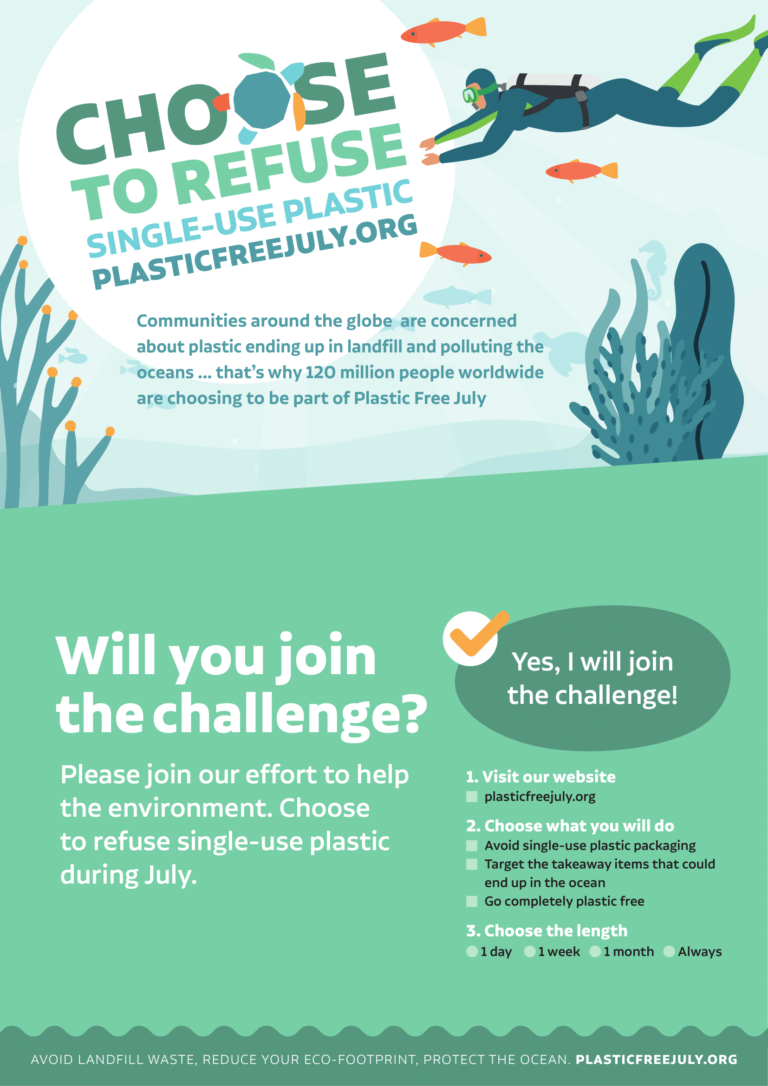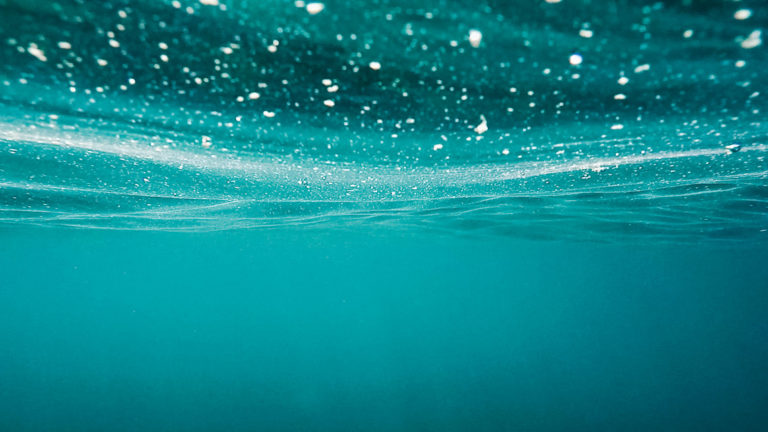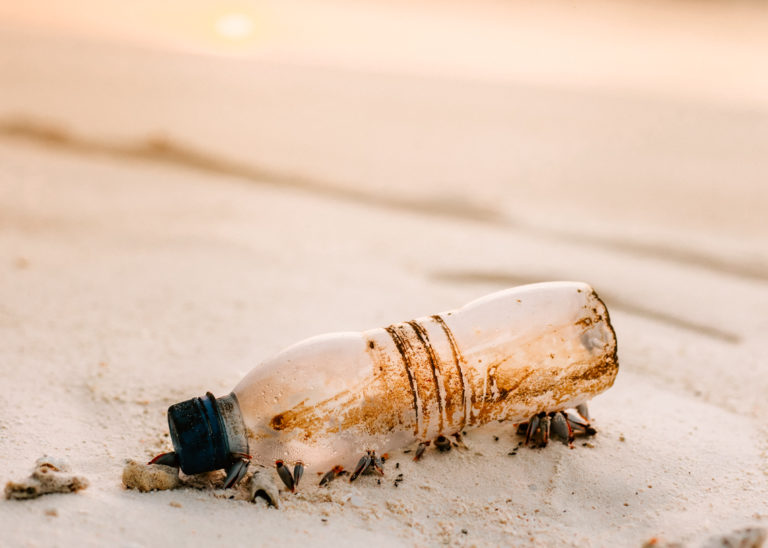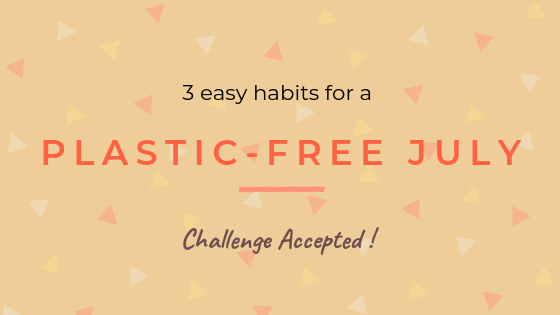
A month to challenge yourself for a good cause
Plastic Free July is a movement that started in Western Australia in 2011 when Rebecca Prince-Ruiz, founder of the Plastic Free Foundation, and a small team launched a campaign to raise awareness on the subject of plastic pollution.
The idea is to push people to follow sustainable habits for one month to reduce the overall use of plastic. Today it has become one of the most influential environmental campaigns in the world with millions of participants, many of whom commit to reduce plastic pollution far beyond the month of July.
The hundreds of choices we make each day impact the environment. Sometimes it’s a big decision… Sometimes it’s as small as bringing your own shopping bag.
We don’t have to be perfect, the most important thing is that we do what we can!
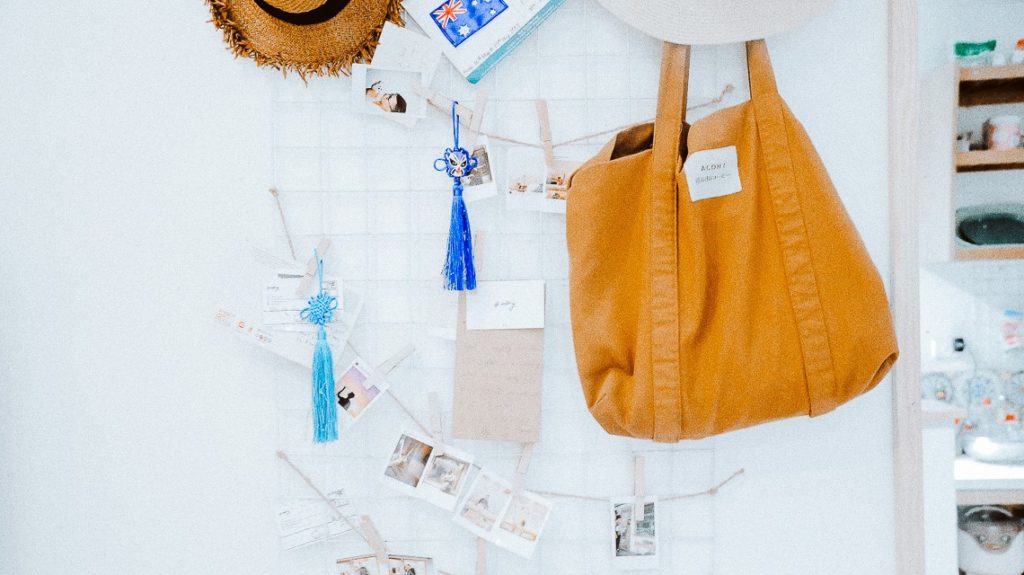
3 easy and conscious habits to adopt straightaway
You want to take action during this #PlasticFreeJuly but don’t know where to start? I am here to tell you the easiest ways you can reduce your plastic waste during this month and onwards! Because why not?! It’s now or never anyways. :p
Warning : you DO NOT have to do everything that is listed below!
These are just a few ideas from where you can start, pick the ones that you think will work for you and that you’ll stick to.
Don’t buy plastic bags
First things first: The grocery bag!! That’s right. I know, I know you already have your reusable shopping bag, you are a responsible citizen. But don’t act like you never find yourself at the cash register realizing that you forgot your shopping bag and you bought too many items, it would be impossible to walk home with that pile in your arms, so you end up buying yet another plastic bag.
So, it might look easy but I challenge you to never buy a plastic bag this month. I also mean the little bags for the fruit and veggies, you can scale them without the bag 😉
Tip: If you are forgetful and don’t want to add another thing to remember, be prepared! Find all the grocery bags you have at home, it can be the plastic ones you stacked under the sink or your new tote bag. Now put a grocery bag in your purse (or purses if you switch them during the week), one in your computer bag, one in your sport bag, one in your kids backpack, and keep one at your work office too (for those squeezed-in lunchtime groceries). Don’t forget to also put them in you car or on your bike rack! A bit extreme? Yes, but the planet will thank you. 😉
Don’t drink from plastic
Yes plastic containers aren’t the best when it comes to health, so why drink liquids polluted with BPA (Bisphenol-A) and Phtalates? We’ll tell you more about these in the next article. This month let’s ditch plastic bottles, plastic cups and straws. Take your mug to work, your reusable bottle to gym class and your coffee cup at the coffee shop. Here is my favourite thermos.
If you don’t drink your tap water, take the time to look at filters for your faucet or at filtering water jugs.
Tip : Adopt the reflex to say no to complimentary water bottles at work or to plastic straws in your happy hour drink. If you can’t sip your cocktail without a straw, then ask if they have any metal/paper ones, next time bring your own metal straw!
Refuse – Reuse – Recycle
- Learn to refuse and to limit your purchases. Learn to say no!
I heard this metaphor at a zero-waste workshop and it really opened my eyes : think of a bathtub full of water that you are trying to empty, scooping out buckets of water. You try as hard as you can, on and on, but the water keeps overflowing. That’s because you haven’t thought about turning off the tap.
And that’s exactly what we do with our waste, we keep on throwing away and throwing away, we do our best to sort and recycle but really, the first thing we should do is turn off the tap, limit the flow of waste from the moment we purchase it.
Now say no, I don’t want that straw in my iced tea. No thank you, I don’t need that complementary conference pen, I’ve got plenty at home. Turn off the tap!
In 30 days you can build a habit of questioning your shopping. Everytime you go out to buy something ask yourself these three questions :
- Do I REALLY need this?
- Is there a plastic free alternative to this product I could buy instead?
- Is there a similar product with less plastic packaging?
By doing this it will push you to really think about the consequences of your actions as a consumer.
- You can also start reusing old stuff before you send it to land waste. Make the most of what you have before you go and buy new things. Your old T-shirt can serve you as a pajamas or workout apparel, then as DIY/work-clothes and finally as a cleaning cloth. Now that’s an OLD T-shirt you can say goodbye to!
- Last but certainly not least, recycle. We all know what recycling is at this point, but make sure you know what can and cannot go in your recycling bin. Sadly recycling is almost useless if not done correctly. Every city/suburb/village has its own rules. Learn what kind of plastics are recycled in your area and what are the rules (e.g. rinse, separate, take to sorting facilities…).
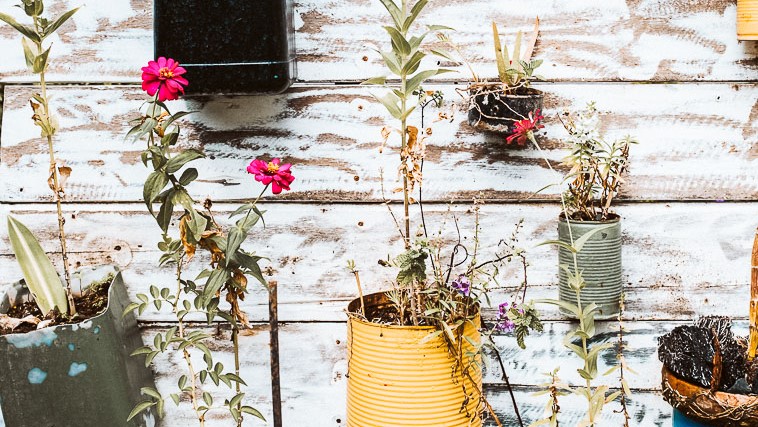
One step further
If you are one of those beautiful souls who already lives by those three actions which have become part of your daily life, you probably feel ready to go even further on your sustainable life path.
Here are two other steps to take:
- Reduce, keep what is essential! At this point you have learned to say no and keep useless things away from you. Now think about what you have and question if what you have is essential for you. Now, I’d follow half of what Marie Kondo (japanese decluttering Guru with a PhD in folding, I fold everything like her now) shows in her Kon-Mari method, yes only keep what sparks joy for you but don’t throw the rest like we see in her Netflix episodes. Don’t put everything in big black trash bags up for landfill. It would be utterly counterproductive for what we are trying to achieve here!! First ask friends and family if they need anything of what you decided to get rid of. Try to sell on Facebook Marketplace, or create an event for a yard/garage/living-room sale. Then send the stuff nobody wanted to Oxfam or any second hand shop in your area. Give your things a second home and simplify your life!
Note : !!! the intention here is to declutter in order to appreciate what you essentially need and have, to make space for other things in your life, but not to go buy new versions of what you just gave away.
- Rot, don’t throw your kitchen scraps away! Get a composting bin, no matter if you live in a little city center apartment or in a suburban house with a garden, there are heaps of options for apartments, garden or balcony. Once your composting bin is full, use it for your plants or empty it in the neighbourhood’s public compost box (if there isn’t one maybe talk to your neighbours and create one) or take it to a friend that has a garden or your neighbour that has a garden.
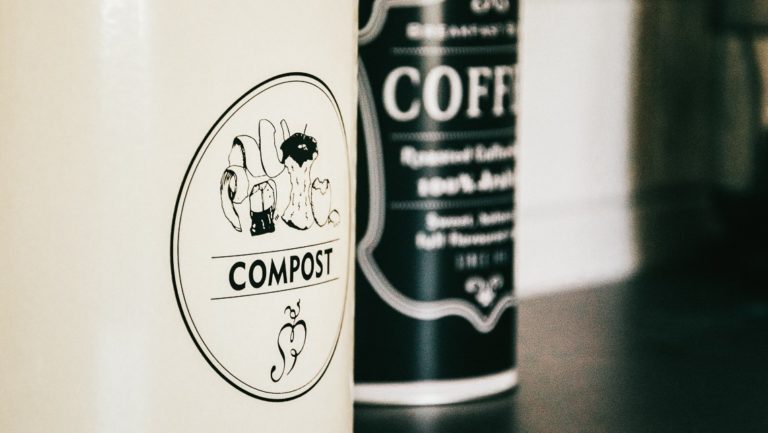
So… Challenge accepted?
Now you know the basics of low waste and you have an idea of what principles you can apply to your lifestyle. You are now ready to take on fearlessly the Plastic Free July challenge. These are basic steps to help you being more responsible and conscious about your choices in your everyday life. Obviously there is always more we can do but for now the goal is to take this month as an introduction to learn about low waste and to understand the impact you can have!
Let me know what you are doing for Plastic Free July by leaving a comment below!
Now let’s do good together for the next 30 days!
Tip : A good way to feel a part of this movement is by taking on the challenge on www.plasticfreejuly.org/take-the-challenge/
They will give you more ideas on how to cut your waste to keep you motivated and at the end of the month, you’ll be able to see how much difference you have made!
